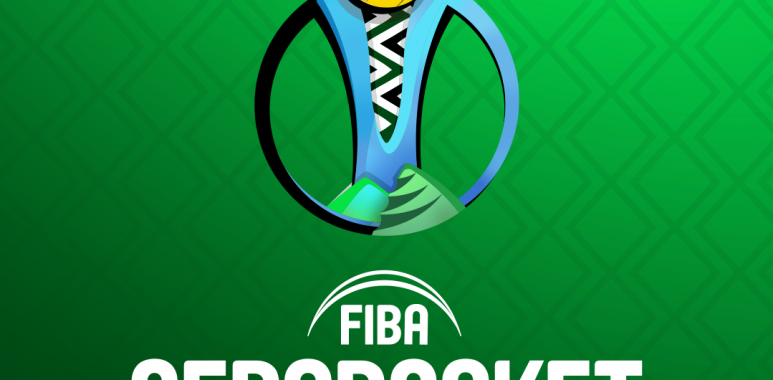
Some of the reasons why Afrobasket 2021 had a good story to tell
Afrobasket 2021 will undoubtedly go down as one of the most exciting and unpredictable tournaments that has been organised in recent memory. While Tunisia winning their second straight title did not come as a major surprise, there were a host of unexpected performances which once more underlines how much the gap in talent has reduced between African national sides.
Guinea’s Run to the Quarterfinals
Guinea came into Afrobasket as one of the torunament’s less heralded sides. Ranked 118th in the FIBA rankings, the lowest amongst Afrobasket participants, Guinea, which had lost all three fixtures at the 2017 competition experienced successive defeats in their two opening group fixtures. However, an improbable win over Egypt and an upset of hosts Rwanda in the quarterfinal qualification fixture, enabled the Syli National to gain an unexpected trip to the round of eight. Guinea’s success was heralded by a host of players who for the most part ply their trades in lower division leagues across Europe. Nevertheless, if Guinea can secure the services of Hamidou Diallo and Sekou Doumbouya, respectively of the NBA’s Detroit Pistons and Brookly Nets for subsequent international competitions, this might not be the of surprises we will see from this team.
The Emergence of the beasts from the East
Afrobasket 2021 had the privilege of being the first continental tournament to see the participation of four East African national sides. It is a testament to the growth of the game in the region and each of these participants made their presence felt throughout the course of the competition.
Uganda: Afrobasket 2021 was Uganda’s third straight appearance at the tournament, but during their two previous outings, Uganda had only registered one victory, ending winless in 2017. Based on this pedigree, the Silverbacks, who are 90th in FIBA rankings and were the last side to qualify for the competition, did not seem highly fancied to make a deep run heading into the tournament. However, after losing their opening game against Senegal by 38 points, Uganda registered trademark victories against Cameroon and 2020 Olympic participants and continental giants Nigeria. Although Uganda’s Afrobasket run ended with a quarterfinals loss to Cape Verde, they were clearly one of the most exciting sides to feature at the tournament. Uganda was led by Ishmail Wainright, who was signed by the Toronto Raptors just before the tournament and averaged 12.6 points per game (ppg), 9.4 rebounds per game (rpg) and 6.4 assists per game (apg) during Uganda’s five games. Wainright who made his debut with Uganda in November made his impact has been felt immediately. The duo of Arthur Kaluma and Adam Seiko were also instrumental to Uganda’s success. The 19 year old Kaluma who will feature for Creighton University in the NCAA for the 2021/22 campaign, averaged 13.2 ppg and 5.8 rpg, while Seiko, who is 23 and most recently played for San Diego State University (alma mater of a certain Kawhi Leonard) scored 13 ppg, while shooting an eye opening 46% from three. Kaluma and Seiko, who are brothers, will be key to Uganda building on their Afrobasket success in future competitions. Team veteran Robinson Opong who most recently featured for Nigerian side Rivers Hoopers in the Basketball Africa League (BAL) added 12 ppg and provided clutch shooting invaluable leadership for the Silverbacks throughout the tournament. Much credit should be given to Silverbacks coach George Galanopoulos, who also led the side during the 2017 Afrobasket campaign. The Texas Legends coach of the NBA G-League has done a marvellous job bringing out the best version of a Ugandan side which still has a lot to showcase in the coming years.
South Sudan: African basketball’s new kids on the block South Sudan, who were participating in their first Afrobasket, came into the tournament with a mindset of having nothing to lose. South Sudan, which only became FIBA affiliated in 2013, fielded a squad consisting mostly of US-based college players and professionals playing in the Australian lower leagues. South Sudan’s athleticism, quickness and youth made them a captivating side to watch throughout Afrobasket and it was only befitting that they were eliminated by eventual champions Tunisia. South Sudan was privileged to procure the coaching services of Royal Ivey, a retired 10 year NBA stalwart, who is currently an assistant coach with the Brooklyn Nets. His guidance will help players such as 20 year old Dhieu Deing, who plays for the University of Texas-San Antonio and averaged 11.3 ppg at Afrobasket, to follow in the footsteps of South Sudanese basketball legends, including the late Manute Bol and Luol Deng. Deng, the current president of the South Sudanese Basketball Federation, believes his country’s maiden participation will lay the foundation for them to assert themselves as a top five African national side in the coming years. With NBA players like Bol Bol and Wenyen Gabriel as well as the scores of South Sudanese basketball talents dotted across Australia, Canada, Europe, East Africa and the US, they will have access to a sufficient pool of talent to achieve this goal.
Kenya: Kenya is another side which came into the tournament unheralded, on the basis of a not so polished basketball pedigree. Kenya qualified in dramatic fashion for their first Afrobasket since 1993, by defeating the Lusophone duo of Angola and Mozambique during the February Afrobasket qualifying window. The Morans started off the Afrobasket group stages with losses to eventual finalists Cote d’Ivoire and African powerhouse Nigeria. Kenya bounced back in the lass group game with a victory over Afrobasket regulars Mali. This set them up for an all East African showdown with South Sudan in the quarterfinals qualifying match, which they narrowly lost 60-58. Kenya’s standout performers included Tyler Ongwae and Albert Odero. Ongwae who plays in Denmark for Brakken Bears and Odero who last featured for Arkansas Tech University, both averaged 14 ppg. Leading Kenya’s improbable charge was Coach Liz Mills. The Australian who has made a name for herself over the past years in African basketball circles, having been an assistant with the Cameroonian and Zambian sides prior, made history in February when she became the first woman to qualify a men’s national side for Afrobasket. Mills continued her magic during the tournament and narrowly missed guiding the Morans to the quarterfinals. With Mills at the helm, it seems like Kenya still has a lot to offer, which can only be a positive development for the African game.
Rwanda: An honourable mention goes to the Afrobasket hosts Rwanda, a team which probably caught fire too early in the tournament after opening with wins over the Democratic Republic of Congo (DRC) and Angola, but following them up with losses to Cape Verde and the shock defeat in the knockout phase to Guinea. Regardless, Patriots BBC star Kenny Gasana put on a great show, putting up 16.3 ppg and 5.3 apg to lead the Rwandans, while Belgian-based William Robeyns, who looks like the future of Rwanadan basketball, supported with 12.3 ppg. Despite their on the court disappointment, off the court, Rwanda must be praised for establishing itself over the past couple years as a hub for hosting basketball events on the continent. Afrobasket qualifiers, the BAL and Afrobasket 2021 are the headline events which have been organised at Kigali Arena since 2019. With the direct involvement of President Paul Kagame, Rwanda will continue to build on this reputation, which in turn will help in the continent’s development of its basketball landscape.
